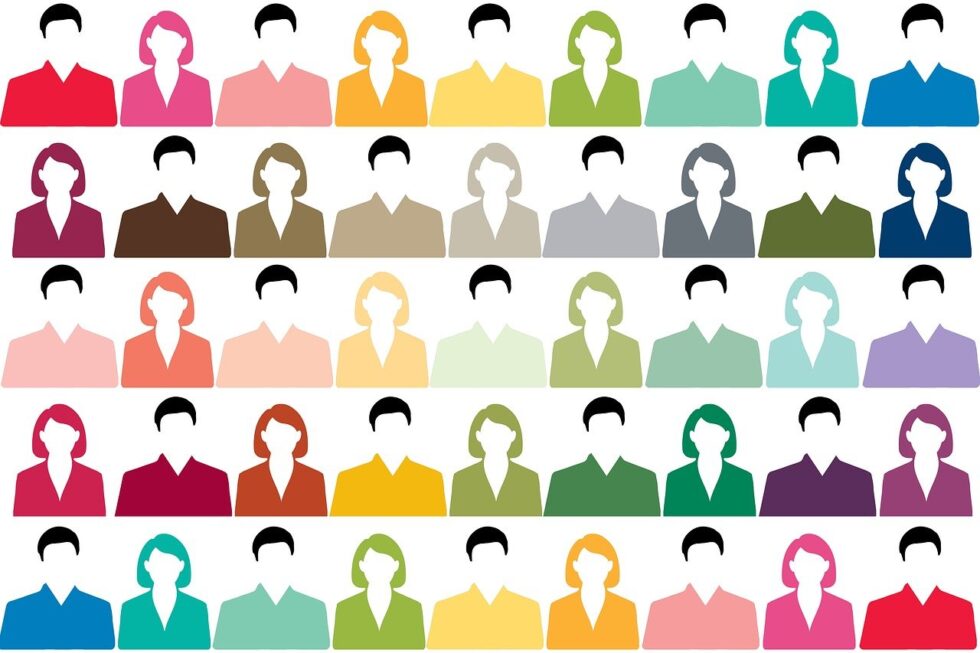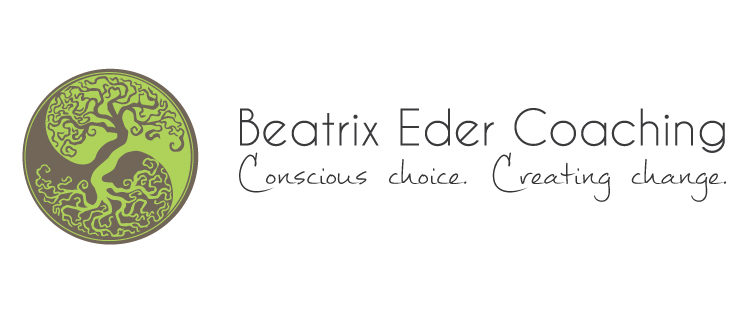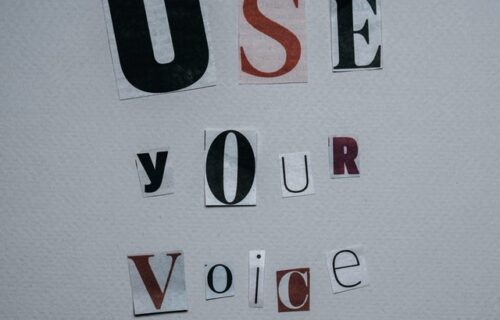
The problem with unconscious bias training
The reason why bias training does not promote inclusive behavior
Diversity & Inclusion are gaining importance outside the ESG (Environmental, Social and Governance) space and more companies start seeing it as a strategic imperative in an amazingly diverse world that is increasingly connected through technology. This is a laudable advancement and necessary if organizations want to change the workplace culture and make it truly inclusive and equitable.
DEI and its influence on organizational culture, vitality and emergence
Organizational culture is an invisible yet all-permeating web of values, norms and practices; and when a culture is inclusive and equitable, it nurtures organizational vitality and fosters emergence: two fundamental aspects for remaining relevant in an ever-changing world.
Organizational vitality is about the ability to successfully face challenges, to act with agility and thrive in a complex and constantly evolving world.
Emergence is a feature of complex systems: when the dynamic interactions among diverse parts of the system generate something new and synergistic.
A common point in DEI programs
Different organizations have different motivations, priorities and starting points when embarking on their journey towards building more inclusive and equitable structures & cultures. Some focus on moral arguments (“It’s the right thing to do”), others on legal arguments (“We want to be in line with laws and regulations”), yet others on business arguments (“We want engaged employees, high performance and trusted relationships with various stakeholders”).
Despite the different motivations, most organizations however will start with training in bias and often this remains the main element of their DEI initiatives to educate employees about discrimination and inequity.
Before we examine to what extent bias training is useful, let’s ask first: what exactly is bias and what is bias training?
What is bias
Unconscious bias, also known as implicit bias, are (mostly) subconscious beliefs, opinions and stereotypes that we form individually and under influence of 4 factors:
1) Our uprbinging
2) Our social and cultural environment,
3) Our own experiences and that of people we are attached to: parents, friends, communities
4) Our educational system
While in some cases, these subconscious beliefs can be surprisingly accurate, they can also lead to faulty thinking patterns (also called cognitive distortions) that can turn into self-defeating mind-traps. When you are following your gut instincts, act on kneejerk reactions or assume things about people and situations, there is a good chance that you are influenced by bias.
The risk is that you might not even realize the way your choices and actions discriminate, exclude and hurt people.
What is unconscious bias training
Implicit bias trainings are designed to identify and mitigate the impact of these personal biases and provide tools to adjust automatic thinking patterns, in the hope to put an end to discriminatory behaviors.
From a corporate standpoint, unconscious bias training makes sense as it is quick and easy to organize, it shows an organization’s commitment to welcome diverse people, and ticks the box of having contributed to promoting Equity and Inclusion in the workplace.
The idea that completing a 90-minute workshop or a 30-minute online module are sufficient to unlearn deeply ingrained biases is seductively simple… and deceptively naïve. While such trainings can be both fun and informative, our biases mostly operate below the conscious level and won’t magically change into equitable decisions. Unfortunately, when it comes to deep & delicate themes like Equity & Inclusion, there is no quick fix and bias training is not a silver bullet against prejudice.
Also, it’s worthwhile recognizing that bias is not an evil demon but a mechanism that has an important function.
The function of bias
People are naturally biased because the human brain has evolved over millions of years to increase our chances for survival. As your brain works to ensure that your attention and energy are used with maximum efficiency, it aims to simplify the processing of information load… and the result is the formation of cognitive bias.
Biases are like default shortcuts, serving you in being able to make sense of situations and take decisions quickly - which in extreme situations can be life-saving.
Looked at this way, biases are useful rules of thumb, allowing us to process information and take decisions faster through prediction. It’s for this reason we instinctively categorize people according to factors such as skin colour, weight, age, gender, accent, education, religion, or status.
Imagine how much time and energy it would take to consider all possible options for the most basic and daily decisions. We live in a complex world, in which a multiplicity of interdependent variables interact in constantly changing and often unpredictable ways - making it necessary to rely, at least occasionally, on mental shortcuts.
As you see, the human brain is a fascinating and powerful instrument, and like everything, it has its limitations.
There are ~200 types of biases and it is impossible to be aware of them while absorbing information and deciding moment to moment what actions to choose in our social interactions.
Did you know that while our five senses gather and process information corresponding to ~11 million bits per second (!!!) from the environment, the processing capacity of the conscious mind (for example when reading or playing the piano) is less than 50 bits per second? This gives you an idea of the bandwidth for the traffic of information we can pay conscious attention to at any one time.
So, the reality remains that even with our best intentions to be completely impartial, our brains will have difficulties following through.
The problem with unconscious bias training
The concept of unconscious bias training originates from the civil rights and women’s equality movement in the 1950ies and 60ies. These programs have not been designed by people who went through discrimination, understood its painful effect and wanted to create an equitable culture; rather, they were designed by corporate lawyers who intended them as a tool for risk mitigation and compliance in order to protect their organizations from litigation for being not equitable.
I see three big problems with implicit bias trainings:
- The focus of these programs: they target the individual and their subconscious worldviews and overlooks that it’s not just individuals who are biased but the system with its structures, policies and processes.
- No scientific foundation for their effectiveness: There is no scientific evidence that awareness of our unconscious bias leads to a decrease in bias or unbiased actions. A study published in 2018 by the Equality and Human Rights Commission found that unconscious bias training does virtually nothing to change people’s behaviour. At best, these unconscious bias trainings have some impact when conducted shortly before important decisions, such as performance reviews. Yet overall, and as a main element of DEI programs, focusing on bias is disempowering and futile.
- Continuation of biased actions: Finally, most unconscious bias trainings are mandatory, one-off initiatives without follow-up to apply the learned information and, in some cases at least, participants take this as an implicit permission to continue with biased decisions, holding up the excuse that they have done the training and bias cannot be cleared out.
So, are we all doomed to remain stuck in our exclusionary behaviors, perpetuating the marginalization of some groups and upholding a system of inequity?
The good news is that no, we are not doomed. Fortunately, there are ways to do things differently and contribute to making the world of business accessible and workable for all, instead of a select few.
The bad news is that this is hard work that requires commitment and courage to roll up your sleeves and get messy.
And how do we do that? – you are probably asking.
We move toward inclusive & equitable workplaces when we equip people at all levels with tools and practices they can learn and consciously use in their daily lives, choosing moments of inclusion and equity, one decision at a time.
This is the reason why Beatrix Eder Coaching is providing a multi-pronged approach to support organizations and their employees in creating workplaces in which equity is the status quo and all people, regardless of their background and identity can achieve their full potential.
Beatrix Eder Coaching works with organizations both on
- the macro-level of creating equitable policies and processes as well as on
- the micro-level of fostering inclusive behaviors that build / create an inclusive and equitable culture.
The provided services range from coaching (individual and group setting) to workshops, inspirational talks and consulting.
If you want to know more about my approach and discuss how your organization can be more inclusive and equitable, feel free to reach out.
********************************************
Does this article resonate with you?
Here are some ways I can support you and your organization:
Get Individual leadership coaching with Beatrix
Deepen and accelerate your learning with one-on-one coaching with Beatrix. Identify and transform patterns and learn new tools that will help you to practice Inclusive Leadership at Work & Home and effectively work with people across differences in identity, experience and power.
Inquire about Individual Coaching here.
Get group coaching with Beatrix
Team coaching is a mid-term process with regular sessions that support a team in an individualized way to improve both the improvement of task-execution as well as the collaborative alliance within the team. The process supports teams to become more cohesive, increase their ability to problem-solve and become more competent in transforming overt and covert conflicts.
Inquire about Group Coaching here.
Book Beatrix for a webinar / workshop / training
Beatrix facilitates virtual and in-person workshops using experiential, interpersonal and reflective activities to share knowledge around Inclusive Leadership, inspire vision, ignite change and build workplaces that are diverse and cohesive. Participants will be supported to embrace new perspectives about differences and translate freshly gained knowledge into concrete actions.
Sessions are customized to your needs and can be delivered in 90-minutes to 3 hours.
Inquire about Webinars and Workshops here.
Get support with Organizational Consulting
Beatrix can help your company to co-create creative and cohesive teams that work effectively in a hybrid work environment, using effective feedback systems, collaborative decision-making processes and respectful communication norms.
Inquire about Organizational Consulting here.



